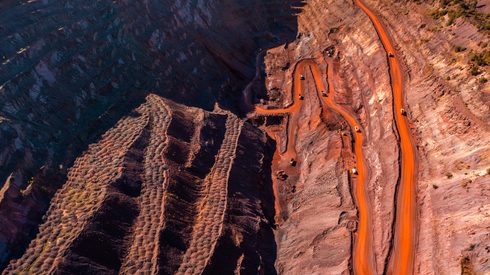This has prompted a raft of lithium incumbent and junior miners to disclose their environmental commitments over the course of 2020.
The move is in line with more stringent requirements from car makers attempting to control the sustainability of their supply chains.
A key point of focus over the course of 2020 has been the consumption of water in the lithium extraction process in South America.
Argentina, alongside Chile and Bolivia, is part of the so-called lithium triangle that holds over 70% of the world’s reserves of lithium beneath its salt flats.
Australia is another important source of lithium where it is extracted via hard-rock mining.
Water usage
In October, incumbent Chilean lithium producer Sociedad Quimica y Minera (SQM) unveiled its sustainable development plan intended to reduce the environmental impact of its operations.
The miner pledged to immediately reduce the use of fresh water at its operations in Chile’s Salar de Atacama region by 30% in comparison with 2019 levels. It aims to raise this reduction to 50% by 2030.
The announcement followed renewed scrutiny of SQM’s use of fresh water and the effects that its operations have on the ecosystem of the western part of the Salar de Atacama area. A number of indigenous communities had raised concerns about its operations.
Governments are also increasing their scrutiny on the sector, which pushes lithium miners to up their game when it comes to sustainability.
Earlier in December, the European Commission (EC) released legislative proposals aimed at creating a legal framework on the sustainability, traceability and circularity of battery production throughout its life cycle.
The EC proposes that from July 1, 2024, only rechargeable industrial and EV batteries for which a carbon footprint declaration has been established would be allowed entry into the European Union market.
This came on the wake of efforts by European EV manufacturers to implement high sustainability standards in their supply chains.
German carmaker Mercedes-Benz said in November that it would transition to sourcing cobalt and lithium for EV batteries only from certified mines to reduce the environmental and social impact of its supply chains.
Similarly, compatriot carmaker BMW said earlier this month that it had commissioned a study on sustainable lithium extraction in South America, which includes an analysis of water consumption.
The study forms part of its attempts to make its operations more environmentally friendly. New agreements with lithium miners will be conditional on them meeting the sustainability standards set by the car manufacturer.
Sustainability looks set to remain a key point of focus in the development of lithium projects as demand from the EV sector continues to grow and new operations come online in the medium term.






